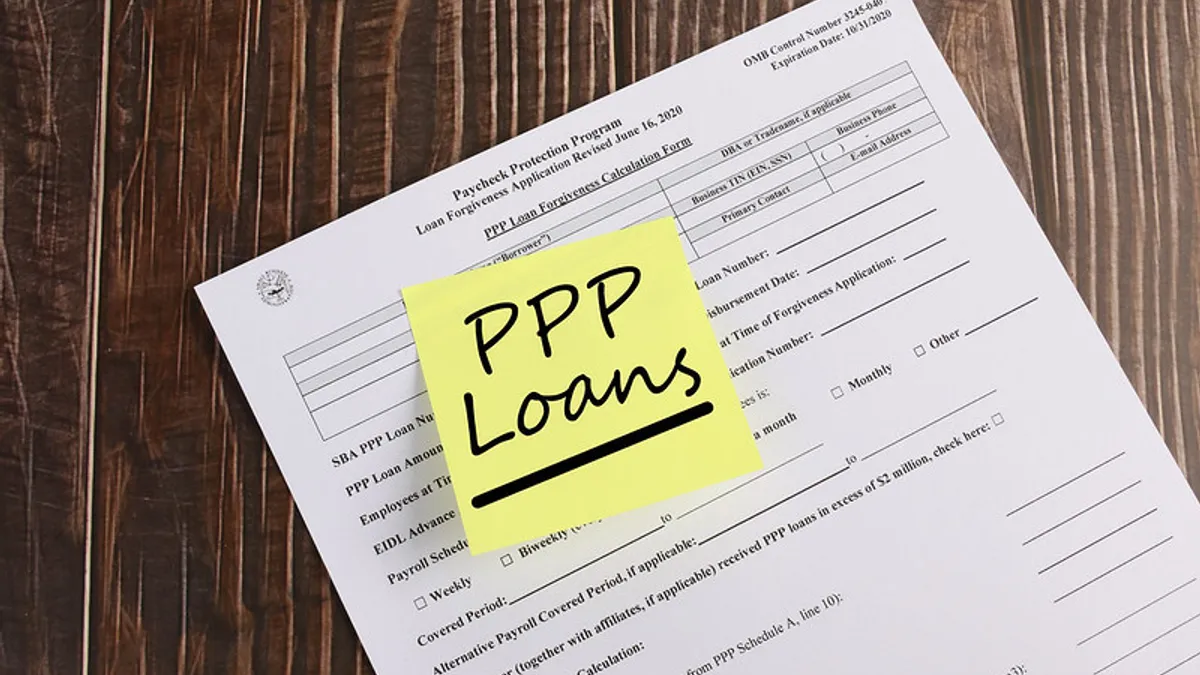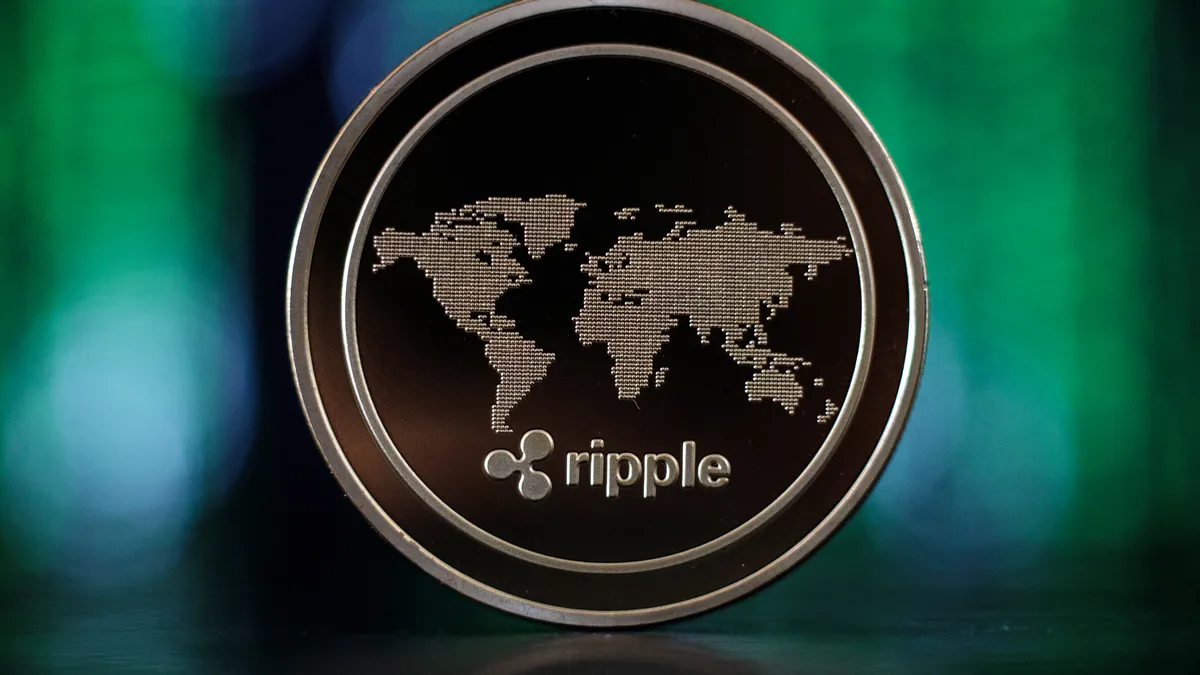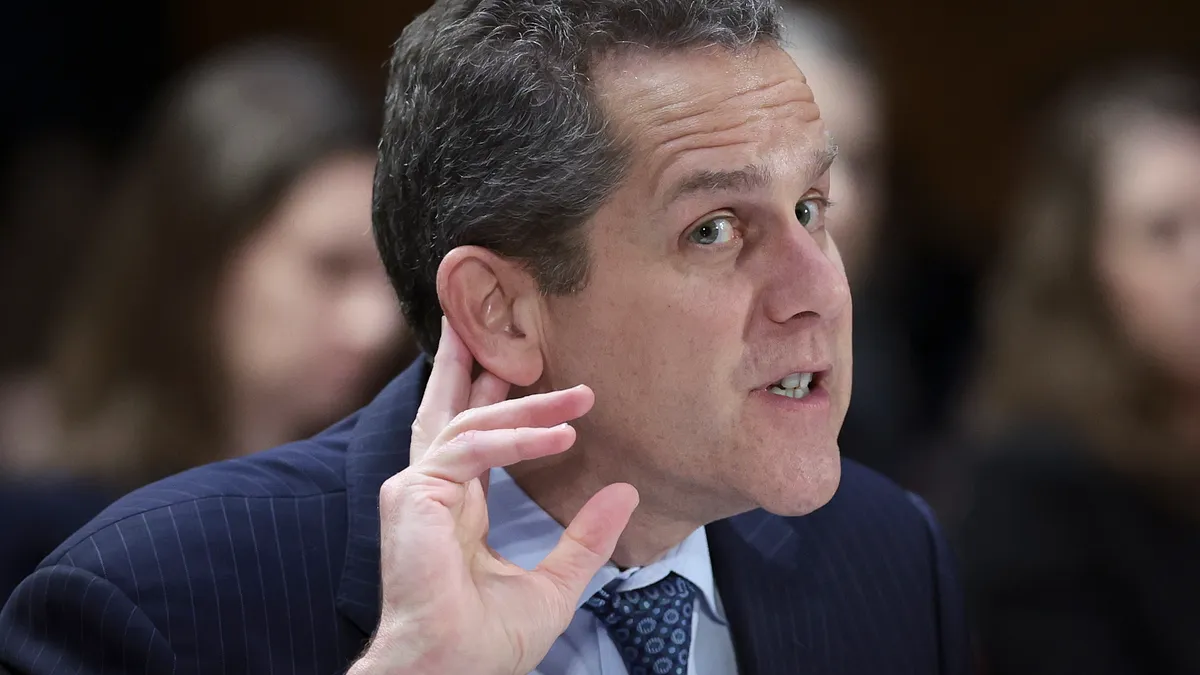Two fintechs, Biz2Credit and Womply, agreed to pay a collective $59 million to settle allegations they deceived small businesses seeking Paycheck Protection Program loans during the COVID-19 pandemic, the Federal Trade Commission said Monday.
Biz2Credit and its subsidiary, Itria Ventures, will pay $33 million in damages because they claimed PPP loan applications would be processed in an average of 10 to 14 business days, but the true average was more than a month, the FTC asserted in a complaint filed in the U.S. District Court for the Southern District of New York. Tens of thousands of applicants waited more than two months, yet Biz2Credit continued to advertise the 10- to 14-day time frame until nearly the end of the program, the FTC said.
In a statement sent to Banking Dive on Tuesday, Biz2Credit defended its advertised processing times, saying they “reflected the experience of legitimate loan applicants.”
Biz2Credit said the FTC claimed the advertised processing times should have taken into account all applicants, including those whose applications the fintech reviewed and rejected as potentially fraudulent or ineligible.
“Had we not taken the extra steps and time needed to vet applications, even more of the limited PPP funding would have gone to fraudsters and companies not eligible for PPP loans,” Biz2Credit said, citing a Small Business Administration estimate that $200 billion in COVID-19 relief was disbursed to potentially fraudulent actors.
Biz2Credit emphasized its target demographic, too, saying 47% of the businesses it funded through the PPP process were minority-owned businesses, 32% were women-owned, and many had three employees or fewer.
The FTC, for its part, claimed Biz2Credit, at times, ignored applicants’ requests to withdraw their loan applications — in some instances, delaying or preventing them from getting PPP funds elsewhere. The fintech designed its application process to lock in as many applicants as possible before underwriting loans, restricting them from submitting applications to other PPP lenders, the agency said in its complaint.
Under the settlement, Biz2Credit agreed to refrain from “misrepresenting key information about loan applications or any material fact about a government benefit,” the FTC said. The proposed order also prohibits Biz2Credit from failing to allow consumers to promptly withdraw their applications.
In its statement, Biz2Credit said it is “disappointed that the FTC took the positions that it did.”
“Legal compliance is central to our business and strong reputation, and during [PPP], we did as much as any lender to comply with the government’s guidance,” the fintech said. “The unfortunate reality is that FTC actions like this are very costly to litigate. Our decision to settle rather than contest the FTC’s claims in court represents a pragmatic decision to put the matter behind us with no admission of wrongdoing. In short, Biz2Credit agreed to this settlement so it can continue to fully concentrate on the important work of financing small, underserved businesses in these uncertain times.”
Womply
Womply and its CEO, Toby Scammell, meanwhile, agreed to pay $26 million to settle allegations they widely advertised that small businesses — particularly one-person entities such as gig workers — could successfully get PPP funding. However, more than 60% of Womply applications never resulted in funding, the FTC said in a complaint filed in U.S. District Court for the Northern District of California.
The company and its CEO failed to fix known technical issues that hindered their applications or left many unable to receive promised customer assistance, the FTC said.
Womply deactivated its phone-based customer service line after receiving more than 4,800 support requests from applicants in one month, the FTC asserted. When applicants used the fintech’s online chat support, some didn’t receive replies for hours or sometimes days. The complaint cites one example in which a business owner reached out to employees of a third-party company that worked with Womply on their personal social media accounts.
Alex Cheney, a partner with Willkie, Farr & Gallagher, a law firm representing Womply, said the fintech “remains proud of its success facilitating over 1.3 million PPP loans during the COVID-19 pandemic.”
“While we disagree with the validity of the FTC’s allegations and claims, the Company and its CEO have made a business decision to settle and are satisfied to put the FTC’s allegations behind them,” Cheney said in a statement, adding that the settlement “does not detract from the fact that Womply’s platform was a major success during a national crisis.”
“Womply’s quick action made a positive impact on the American economy and the lives of more than a million small businesspeople, who otherwise would have been left out of most PPP funding,” Cheney said.
The FTC, in its complaint, cited Womply’s “PPP Fast Lane” platform, which, the agency claimed, promised that loan applications would be prepared within 24 hours — “faster than a bank.”
The FTC’s proposed order prohibits Womply and Scammell from “making any deceptive, false or unsubstantiated claims about financial services or products.”
“Biz2Credit and Womply deceived small business owners trying to secure loans at their time of greatest need,” Samuel Levine, director of the FTC’s Bureau of Consumer Protection, said in a statement Monday. “The FTC is committed to protecting small businesses from these sorts of unlawful practices.”
This is not the first time Womply has been taken to task over its PPP practices. The SBA, which ran PPP, suspended Womply from working with the agency “in any capacity” in December 2022, a week after a scathing report identified the fintech as among the most lax of PPP participants with regard to anti-fraud standards.
Biz2Credit, too, has been called out for PPP-era action. In its 2022 bankruptcy filing, KServicing — formerly Kabbage — said lack of cooperation from its acquirer, American Express, forced the company to turn to Biz2Credit, a third-party vendor, to process PPP loan forgiveness applications.






















